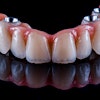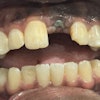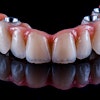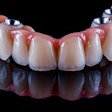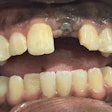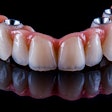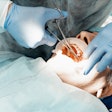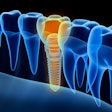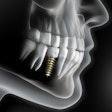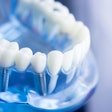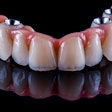
Smoking may significantly raise the risk of early implant failure at the prosthetic and individual patient levels, according to a systematic review and meta-analysis recently published in the Journal of Dentistry.
Furthermore, anatomical differences between the maxilla and mandible impact failure rates, requiring customized strategies to ensure implant success in smokers, the authors wrote.
"These findings suggest smoking cessation is a crucial factor in reducing risk of early dental implant failure," wrote the authors, led by Ying-Ying Fan of the Chinese Academy of Medical Sciences (J Dent, October 9, 2024).
For this review study, researchers searched publications and included 32 observational clinical studies involving 59,246 implants and 14,115 patients from 1994 to 2024, they wrote.
Fourfold tables were generated, and the odds ratios (OR) for different groups (smoker versus nonsmoker, smoker versus ex-smoker, and nonsmoker versus ex-smoker) were calculated for each study. ORs were used as the measure of association across all included studies. A meta-analysis was then conducted to assess the link between smoking and implant failure, as well as to identify differences in early failure rates between maxillary and mandibular implant sites, the wrote.
At the implant level, a meta-analysis of 21 cohort studies showed that smoking increased the risk of early dental implant failure compared to nonsmoking (OR, 2.59; 95% confidence interval [CI], 2.08-3.23). Three studies showed that smoking was linked to a higher risk of early implant failure in the maxilla (OR, 5.90; 95% CI, 2.38-14.66) compared to the mandible (OR, 3.76; 95% CI, 1.19-11.87).
At the individual level, a meta-analysis of 30 cohort studies showed that smokers had double the risk of early implant failure compared to nonsmokers (OR, 2.00; 95% CI, 1.43-2.80). Additionally, three case-control studies indicated that smokers had a 59% higher risk of early implant failure than nonsmokers (OR, 1.59; 95% CI, 1.28-1.97), according to the results.
The study, however, had limitations. The lack of prospective randomized controlled trials made it difficult to draw definitive conclusions about a direct causal link between smoking and early implant failure, the authors added.
"Dentists should prioritize patient education on the risks associated with smoking and the advantages of smoking cessation, advocating for lifestyle changes as part of comprehensive treatment planning," they wrote.

